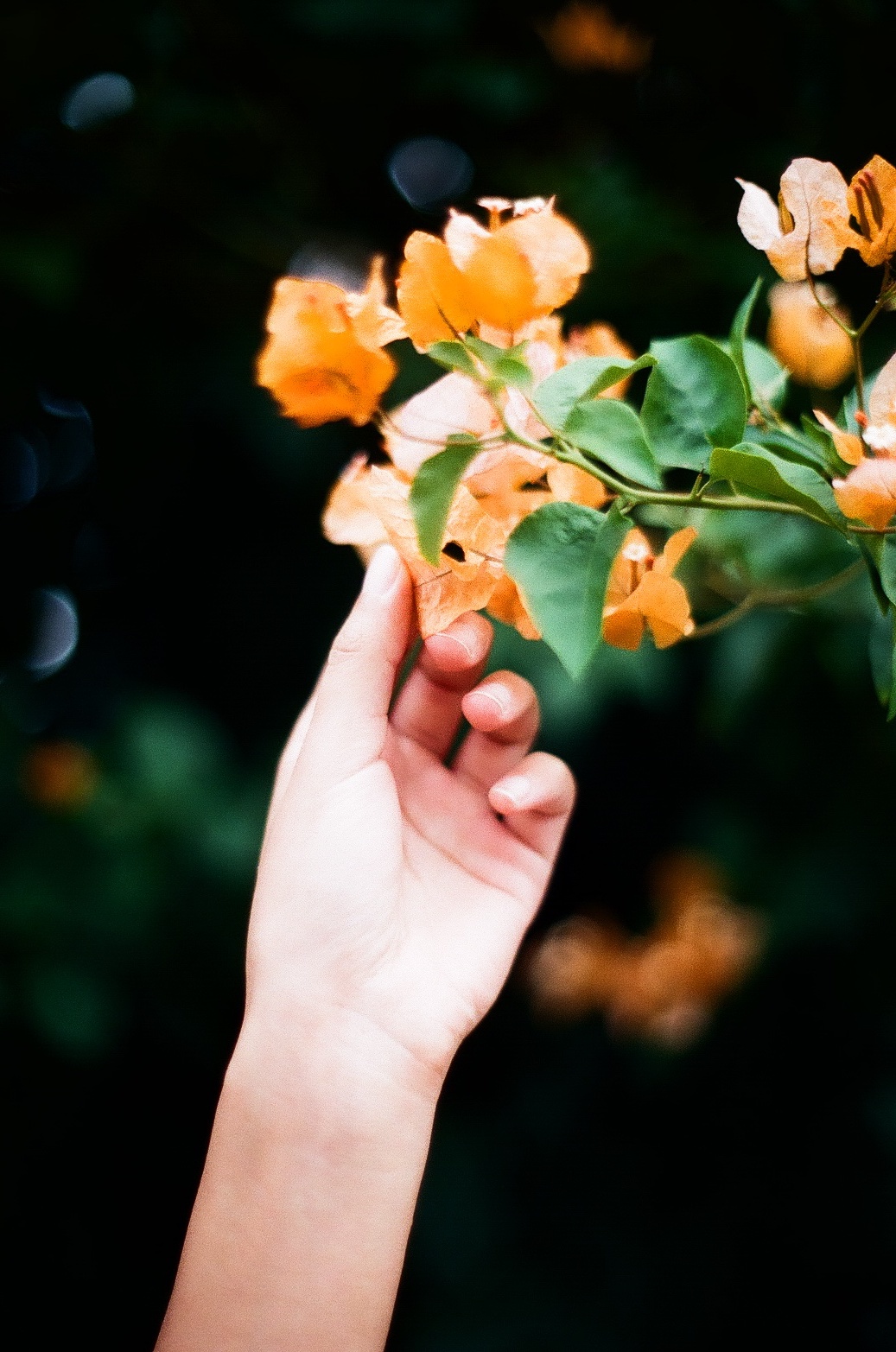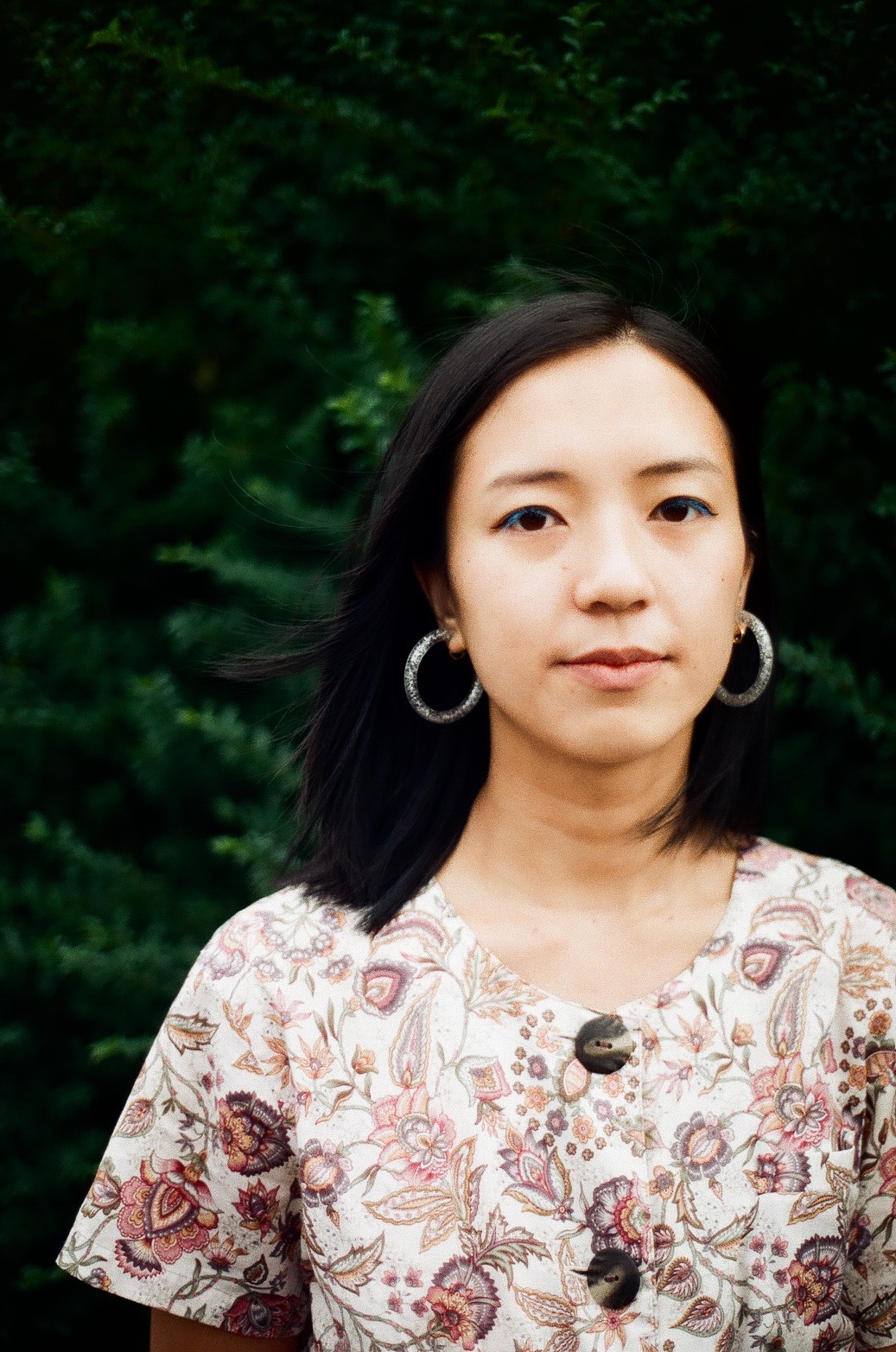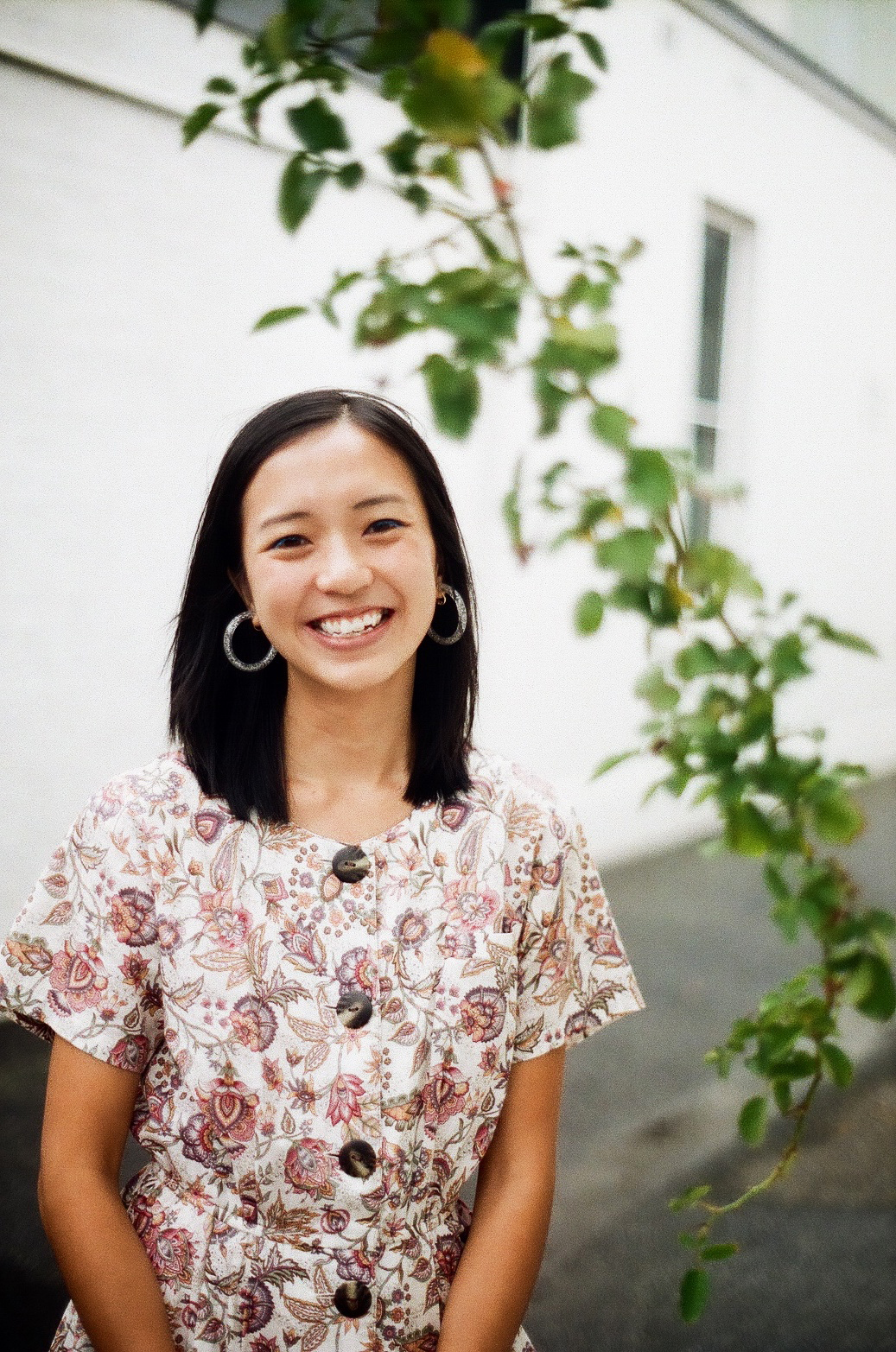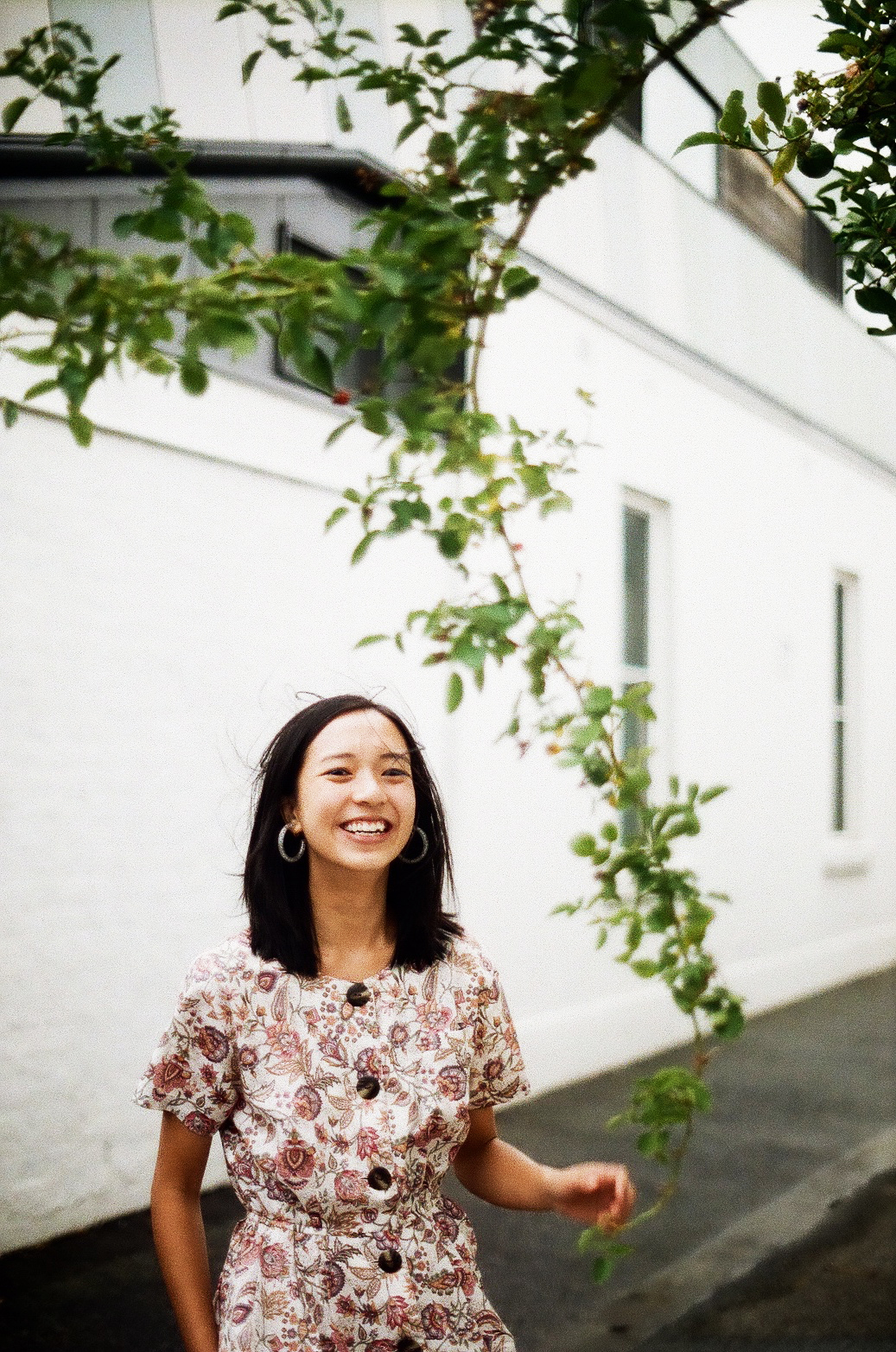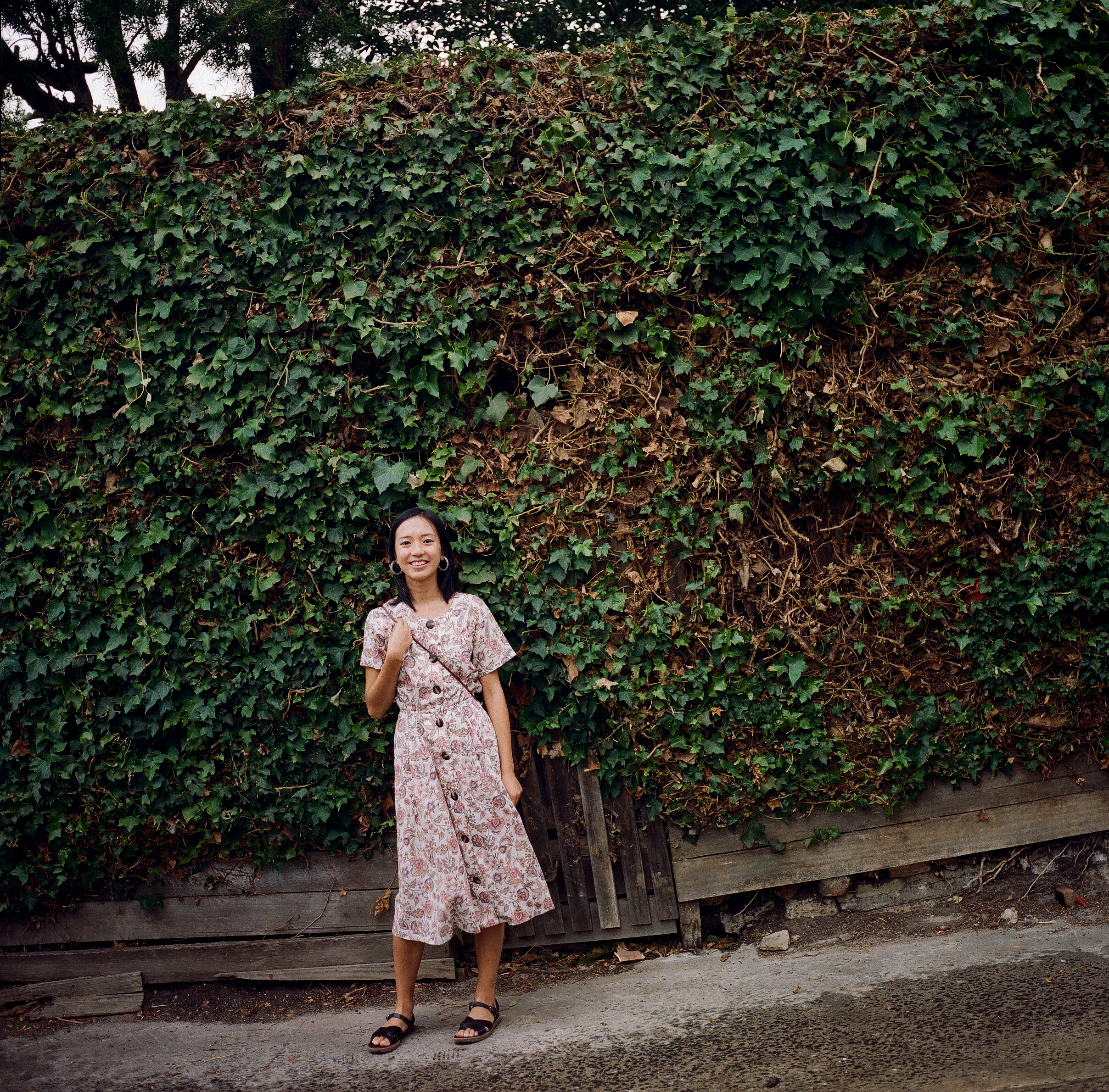Interview #51 — Emma Do
by Tara Kenny
Emma Do is a Melbourne-based freelance writer with a focus on fashion and culture, and the sometimes sticky, always compelling places they intersect. She is the co-founder of Smart Casual podcast. Emma has been published in Broadsheet, i-D, VICE and Complex.
Emma spoke to Tara about writing fashion through a critical lens, co-founding the Smart Casual Podcast, and using creative outlets to avoid being forced to become an accountant.
Funnily enough, I’ve actually interviewed you twice before. The first time was when we first met and I interviewed you about Pocketto, the glossy fashion magazine you made when you were a teenager! Pocketto is such an impressive early project.
I love that we eventually became friends in the years after the first time you interviewed me. Pocketto started at some point during my years as a wee fashion blogger in my teens. I’ve always been obsessed with magazines but I wanted a place where deserving local talent in fashion and illustration could be spotlighted, so I made that happen through Pocketto. I was also scared I’d grow up and forced to be an accountant if I didn’t make some sort of creative dream happen from an early age. Pocketto eventually became a website that published writing, fashion photos and illustrations by emerging talents. In the final years of its life we raised money to take it into print. Being 17 and publishing and distributing a printed magazine was truly anxiety-inducing, but I am eternally grateful for all the people who contributed their energies and believed in us.
Your work remains focused on fashion, writing and publishing in various manifestations. Can you fill in the blanks about what you’ve been up to since?
I went on to study Journalism at university with the vague goal of ending up writing for magazines. Somewhere along the way I took a liking to news journalism and went on to feel completely conflicted as to what kind of writing I wanted to do in the future – did I really have to pick? Turns out you can kind’ve do it all and more with web writing.
I don’t typify myself as a fashion writer, although I’ve written a fair amount about fashion in the last two years. It’s been great to have a steady beat to focus on and to carve out a little niche for myself covering Australian fashion—from indie, to high end and in-between. Elsewhere I’m experimenting with telling stories through audio and multimedia.
One thing that’s so interesting about your fashion writing is that you actively confront issues of ethics and culture, which are so often sidelined in the fashion world. Is that an intentional approach?
Sometimes I feel kind of silly telling people that I write about fashion, then I think about the sports writers who never feel an ounce of embarrassment about their beat because they get a 10-minute segment on the news every night.
I try to always look at what I’m writing about through a critical lens. I can’t say every piece of fashion writing I’ve produced has confronted an issue—a lot of the time I’m just writing about beautiful clothes and creativity and that’s great because being a fan is so pure. But I really do enjoy the moments where I have the space to delve into history, talk business, or analyse fashion’s intersections with identity, culture and ethics. There’s heaps to talk about beyond trends and what to buy next season.
I think it’s hard for fashion magazines to acknowledge or engage in overtly critical and self-reflective commentary because they’re so beholden to advertisers and industry connections. As a result, the tough talk is often left to news media.
There’s a fair bit of fashion writing that just continues the mythic glamour of the industry, but there’s also a significant body of writing that covers the unique issues of a global industry worth $2.4 trillion dollars, where women are the majority of the workforce. If you’re looking for good reads, The Business Of Fashion is of course up there (it does exactly what its title suggests), while Racked and Quartz both publish insightful features about the way we consume.
Can you tell me about your project examining the role of local Vietnamese women in fashion production?
I’ve been working on a personal project for quite some time which documents stories from Vietnamese sewing machinists, seamstresses and their children. Over the last two years I have become increasingly curious about learning what local manufacturing looks like, especially now that many Australian brands are choosing to manufacture locally and are proudly marketing themselves as such.
I’ve always known that the entire clothing and fashion industry is built on the labour of people of colour (POC), predominantly women—but for some reason, was surprised when I learned that my good friend’s mum (who is Vietnamese) is a sample machinist. It sounds so silly to say, but my first thought was, there are people like us in fashion? When I started asking around, I was even more surprised to learn that nearly every Vietnamese person I knew had parents, grandparents and other relatives and friends who had worked as machinists, sewing from home garages and factories for a pittance in the eighties and nineties.
I was startled that I didn’t know this piece of my community history. I was born just as the death of Australian fashion manufacturing set in, but for some of my peers, the memories of their parents sewing in the lounge room until midnight for Country Road, Cue, Target, Sportsgirl, for example, are still vivid. It made me think: How can I go and hear these stories and document them? So that’s what I’m working on.
There is a tendency to only talk about exploitation of workers in the garment industry as something that happens overseas, but it happened in Australia for a long time. Despite federal legislation enacted in 2011 to protect vulnerable outworkers (contractors who sew from their own home) from being exploited, there are still workers who fly under the radar here. I heard a story about a woman who worked as a contractor from her garage for her entire life, and only a year ago did she get a job with a full-time salary—her skills finally recognised. It was heartbreaking.
Getting interviews with the people who worked or still work in this part of the industry has proven tough. For some people, their sewing job was physically demanding and low paid work—even shameful—and they don’t want to revisit those memories. Others don’t see what’s so special about their job that’s worth talking about, let alone documenting. I’m so grateful to the people who have opened up to me so far.
The second time I interviewed you was for a university project about identity and belonging amongst first generation Australians, which is very relevant to this discussion! How does your cultural heritage inform your sense of identity?
My Vietnamese identity is completely rooted in my family, who instilled a lot of pride in our Vietnamese-ness from a young age.
Mum was always really proud that my first language was Vietnamese. She found it hilarious how baffled my pre-school and prep teachers were when my cousin and I would gossip to each other in Vietnamese. I distinctly remember my aunty teaching us how to say ‘go eat dog shit’ in Vietnamese to spit back at school kids’ racist taunts – it was either that or an instruction to ‘tell them they’re a VC’ (Viet Cong), the political nuances of which I didn’t understand until I was much older.
Mum was one of the few Vietnamese mums I knew who relentlessly told me about her boat journey to Australia. I didn’t have cute fairy tale bedtime stories growing up but I definitely had stories about her planned escape, the days and nights she spent vomiting on a rickety boat, and the pirates she encountered. When I was younger, she’d say, ‘you should write a book about me’.
I grew up hearing ‘we don’t do/think/eat/talk like that, we are Vietnamese’ from my family. But as I went through school, finding and befriending more and more Vietnamese-Australians like myself, I embraced the hyphen and began seeing myself as a hybrid of both cultures.
You spent some time working for the Vietnamese community newspaper, Tivi Tuan San. Tell me about your experience there.
When I started at Tivi Tuan San, I quickly began learning about the Vietnamese-Australian community’s opposition to anything that comes from current Vietnam. It was a dynamic I’d known of but had never thought deeply about.
The majority of the Vietnamese community here fled the communist government in the seventies and eighties, so they don’t see the Vietnam that exists now as their Vietnam. Their country was lost when they left. It puts the kids of my generation in a strange position, because I think there are a lot of us here who want to understand more about our supposed motherland, to visit and engage with other young Vietnamese now, but we have to first navigate our parents’ trauma and past experiences.
I suppose working there made me more obsessed with my parents. That sounds unhealthy but I just want to know everything about them. Yet despite how open my mum is I know there are things she can’t tell me, at least not yet. So instead, I read accounts of other Vietnamese refugees and swap family stories with my Vietnamese-Australian friends in an effort to make sense of our parents’ lives before us. We’re all terrified that one day our parents will be gone and we’ll have learned nothing of our culture to continue carrying it.
I see my anxieties similarly reflected in my dad sometimes. He is ethnically Chinese, but was born in Vietnam. We went to China as a family once, but I think it left Dad feeling very embarrassed about his lack of communication skills—he really felt like a tourist. Now I think he enthusiastically consumes every book, movie, article, TV show, and art show about China in an effort to hold onto that part of his identity.
You’re a writer, presenter, illustrator, photographer, and probably lots of other things I don't know about. How do you balance these different endeavours, and do you have a specific focus at the moment?
I recently got a full time job in content—it’s not what anyone at journo school endorses, but hey, it sure is a sweet relief from freelancing and working nights. Writing is really my bread and butter at the moment. All the other things were just hobbies I had as a kid that I’ve somehow managed to make a small amount of money from as an adult. One day I’d like to find a way to do all the things I love at once.
My current side project focus is Smart Casual, a fashion podcast that I run with fellow Liminal subject and all-round beautiful human Amie Mai. We wanted a place to explore fashion issues in depth, particularly in the Australian context, but we wanted to do so in an accessible and conversational way. We’ve released two episodes so far—the first about how rampant discounting isn’t actually that healthy for designers or consumers, and the second about how ethical fashion can work harder to win over a larger audience.
Do you have any advice for emerging freelance writers and ‘content makers’/media people?
If you’re freelancing, get out of the house. Even if only to sit in the backyard, at the library, or a café. Just get out.
Stop comparing yourself to other people, you’ll get there on your own time.
You deserve to be paid for your work, so demand for those invoices to be paid.
Pitch with the confidence of an entitled, mediocre white man.
This is not particularly related to freelance life, but I interviewed Tania Canas once and I constantly think about her advice about working in white spaces:
Stay connected to your community. My experience from predominantly white institutions is that they look to incorporate you and assimilate you. If you are going to work for white institutions, do not work entirely in white institutions. Work on other projects too, stay connected to community, do volunteer work—there are so many ways. Working in exclusively white institutions as a POC can be exhausting and traumatic, and can also be a very lonely and increasingly isolating experience. And you will burn out.
Who inspires you?
All the women in my life who put in bucketloads of emotional labour to support those around them.
What are you currently listening to?
I’m currently sitting at my work desk, blinking back tears as I listen to Sampha’s live performances. This is a daily occurrence.
What are you currently reading?
I am a ridiculously slow reader so I am midway through both Viet Thanh Nguyen’s The Sympathiser and Jenny Zhang’s Sour Heart, both of which I am loving so much it hurts.
How do you practice self-care?
I am bad at this. The daily self care I aim for is just sticking to a routine where I eat, shower and sleep at a decent time.
Aside from that, taking time to cook, spending time with friends, playing piano and leisurely bike riding makes me feel happy and balanced again. Also being able to come home and eat my family’s food is the most nourishing thing in the world.
What does being Asian-Australian mean to you?
That silent look of acknowledgement and solidarity we give each other when we’re the only POC in the room. Constantly learning my cultural history and the history of other Asian Australians. Learning the Indigenous history Australia has tried so hard to erase. Understanding how white supremacy pits us all against each other.
Find out more
Interview by Tara Kenny.
Photographs by Leah Jing.


